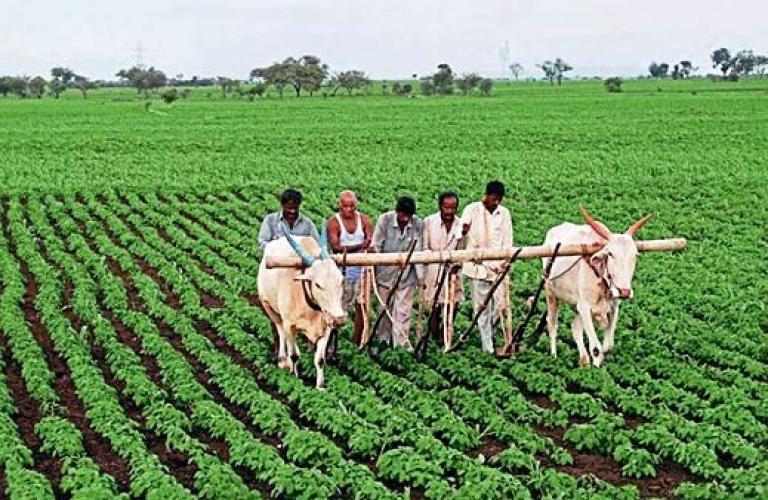- The Government of India, Government of Maharashtra and the World Bank signed a US$ 420 million Climate resilient farming project to help Small and Marginal farmers in the Marathwada and Vidarbha regions of Maharashtra.
- The Maharashtra Project for Climate Resilient Agriculture will be implemented in rural areas largely dependent upon rainfed agriculture.
- In recent years, climate variability has affected agriculture in Maharashtra, where farming is largely dominated by small and marginal farmers. Farmers have low crop productivity and a high dependence on rainfall. Severe drought in the past has affected the state’s agriculture performance.
Significance
- The project will help in increasing climate resilient practices in agriculture and ensuring that farming continues to remain a financially viable activity for them.
- The project is expected to benefit over 7 million people spread over an area of 3.0 million hectare and cover 5,142 villages across 15 most climate vulnerable districts of the region.
- The US$ 420 million loan from the International Bank for Reconstruction and Development (IBRD), has a 6-year grace period, and a maturity of 24 years.
- The project will take up a series of activities at the farm and watershed level.
- It will scale up climate-resilient technologies such as micro irrigation systems, expand surface water storage, and facilitate aquifer recharge, which is expected to directly contribute to a more efficient use of scarce water resources.
- At the watershed level, project activities include building drainage lines and preparing catchment area treatment plans that promote a more efficient use of surface water for agriculture, complemented with a more sustainable use of groundwater, which will ultimately improve the availability and quality of water at the farm level.
- To strengthen emerging value chains for climate-resilient agricultural commodities, the project will improve the capacity of Farmer Producers Organisations (FPO) to operate as sustainable, market-oriented, agri-enterprises
- India’s per capita emission of Green House Gases (GHG) is also on the rise, though current per capita levels of 2.44 t CO2 equivalent in 2012, is still among the lowest in the world. In absolute terms, the agriculture sector is the second largest contributor with around 18 percent of the country’s total GHG emissions. This project will help mitigate that through carbon sequestration which involves planting trees in upper catchment areas and afforestation; growing fruit trees on small orchards; and incorporating crop residues (biomass) into the soil.
- It will also support the state government to shift towards a new paradigm that puts climate resilience at the core of agricultural growth and rural development in Maharashtra.
Source:PIB

